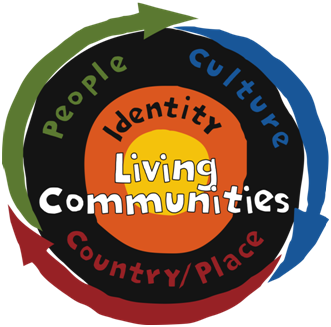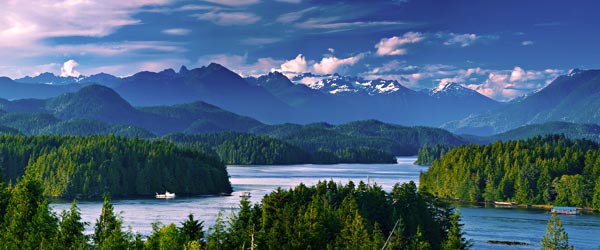Hello classmates and fellow bloggers! Welcome to my digital learning and interactions space.
 I am a storyteller; a writer. I am a fourth year literature major at UBC. This blog will be used to record my journey into ENGL 470A Canadian Studies. I am looking forward to the communication of classmates as we begin to explore the relationships between literature and storytelling in both its modern and historical aspects. I am personally taking this course in the hopes of adding flesh to my bare-bones understanding of identity. My own identity is limited to that of being Canadian–I do not know my ancestral history or their stories. However, I was born on Canadian soil, and I believe I should know the stories surrounding the land I call my home. This, and my claim to being a writer myself, has led to my interest in this particular course.
I am a storyteller; a writer. I am a fourth year literature major at UBC. This blog will be used to record my journey into ENGL 470A Canadian Studies. I am looking forward to the communication of classmates as we begin to explore the relationships between literature and storytelling in both its modern and historical aspects. I am personally taking this course in the hopes of adding flesh to my bare-bones understanding of identity. My own identity is limited to that of being Canadian–I do not know my ancestral history or their stories. However, I was born on Canadian soil, and I believe I should know the stories surrounding the land I call my home. This, and my claim to being a writer myself, has led to my interest in this particular course.
One aspect I find interesting, and hope to examine in this course, is the deviation in the methods of storytelling between European and Indigenous peoples. Or, more specifically, written and oral documentation of history. Oral history, while being much more organic and malleable than written history, is far more fragile. It seems of particular importance to examine this form of storytelling due to the threat Indigenous languages face. This threat is not only of relevance to the preservation of stories and history, but to identity. It is easy to interpret identity as something restricted to a past setting, and this mind-set has led to tensions between Indigenous and non-Indigenous peoples. In reality, history is an ongoing experience and has a lasting impact on shaping peoples lives and cultures that is still relevant today. In order to interact and navigate with other cultures in Canada, we must first learn.
I look forward to a summer of insight and understanding with all of you!
Gillian
Works Cited
Crey, Karrmen. “Aboriginal Identity and the Classroom.” Indigenous Foundations. University of British Columbia, n.d. Web. 15 May 2016.
“Living Communities.” Image. Cross Curriculum Priorities. Working with Indigenous Australian Students, n.d. Web. 15 May 2016.
Luksic, N., Howell, T. “Constitutional challenge looks to revive aboriginal languages.” CBCNews: Aboriginal. CBCNews: Aboriginal, 10 April 2016. Web. 15 May 2016.

Hi Gillian,
This is Christy. Bearing dual nationality, I absolutely understand how history would shape our current identity and lives. I have witnessed and experienced how different forms of storytelling and advancements in technology would impact the process of nation-building and identity-building of a generation, which made me realize that, when it comes to a diversified society, indigenous voices need to be heard as well! While rooting my own Canadian identity, I have read the book “How to Be a Canadian”. This book is very interesting, yet the majority of this book covers the perspective from (possibly) a European descendant. I began to ask questions: why Indigenous people are not equally featured in this book and other type of mainstream media?, and why foreigners always neglected that First Nation is too an important part of Canadians?
I look forward to working with you this summer! Happy Reading!
Hi ChristyLi,
It liked how you pointed out that mainstream media and much of what is considered to be “Canadian” is dictated by a European perspective and narrative. I hope this is something that will be explored further in our course material as we move forward.
I look forward to further interaction with you as well!
It is my pleasure to meet you Gillian. I enjoyed your introduction, and I loved the image you included. You bring up a very real issue about the threat to the Indigenous languages. I read an article from Tyee that reinforces just how important it is to reclaim Indigenous languages. The article talks about how saving language equals saving lives. This is back-up by research done in 2007 by an associate professor of psychology, Christopher Lalonde, and his colleagues at the University of Victoria. They studied 150 First Nations communities in British Columbia, and discovered that in communities where the native language was spoken by at least half of the community, the suicide rates dropped to zero. However when there was little or no connection to their language, those communities experienced suicide rates six times higher than the national average. I encourage you to read the article for full details. The article can be found at: http://m.thetyee.ca/Culture/2016/02/04/Reclaim-Indigenous-Language/ The tie between language and suicide is an important and relevant insight considering the number of First Nations communities in Canada that have declared a state of emergency due to the number of suicides.
I look forward to interacting more with you during the term.
Linda Purcell
Hello Linda,
I read the article you posted in your comment in full and feel even more strongly that it is important to recognize the role language plays in our identity. Also, that the article features a study of British Columbia’s Indigenous communities helped me with the perspective, as I have friends in many of the communities listed and they surround where I myself live. The article made it seem like providing the opportunity for education in mother languages for Indigenous language is simple, as long as there is someone to start the program and to advocate for recognition of the need to have bilingual schools available for native languages. I also found it interesting that the article suggested the implementation of Indigenous bilingual schools not just as a way to preserve the languages and the youth of the communities, but to provide reconciliation to these communities.
Very insightful article, thank you for posting it. I look forward to further communication as well,
Gillian
Hi Gillian!
First, I wanted to say you are a great writer, I really enjoyed reading your introduction to the class. I was attracted to the class for the same reason of understanding the voices of the narratives better. I really liked the article you posted about Aboriginal identity. I grew up in Ontario and the topic of Aboriginal peoples (both their history and their stories) are rarely discussed and barely taught. Moving to B.C opened my eyes to the discrepancies and injustices that have taken place in Canada. I hope to learn along with you about the unheard voices and prehaps even how to aid in making certain voices louder.
Alanna
Hi Alanna,
Thank you! I’m glad to hear you enjoyed my introduction. I find it interesting that Aboriginal peoples’ history is not taught in Ontario, as this is an important aspect of Canada’s overall history. I’m glad to know that my home province of B.C. may be making at least some progress towards acknowledging and repairing the injustices done to Canada’s Indigenous people.
I look forward to further interaction with you this summer.
Gillian
Hi Gillian,
I found it interesting when you mentioned the difference between European and Indigenous ways of recording history, and was wondering if you have thought about why this is. Is there a reason Europeans wrote more, or is it simply what has survived? Do you feel Indigenous people thought it more important to share their stories orally? I have heard that many of their stories are actually not to be shared without permission, which would be easier if they are kept simply in oral form. What do you think of this?
I look forward to reading more of your posts!
Hi Sylvia,
I didn’t know that many of their stories are not to be shared without permission, and find this very interesting and a possible answer to your question of why ways of recording differs. Also, European culture seems to differ from other cultures in that they have the desire to impose their belief systems on other peoples and cultures to the point of violence. This could be why European written and documented history has “survived”?
I’d love to hear more of your thoughts on this!
Gillian
Hi Gillian, I feel in sync with your thoughts completely, my own understanding of being a Canadian is limited but I feel it is important to know the history and stories of my countries, which make up the essence of being Canadian. I am also very curious to see how European and Indigenous storytelling differs, and how their definitions of being a Canadian differ. I am sure they are vastly different as they have different cultures, and traditions and probably had different visions for Canada. There are so many laws, treaties and daily news pertaining to the Indigenous people today, how is what’s happening today actually begin? The threat to the the languages, to their culture, is imminent, but this Indigenous culture is so engraved in this land, you see monuments or you know of acts regarding Indigenous people, how would Canada be different if these things were to change? As they are always in the news and are being debated on, understanding the past will help us better understand the present and future.
Thanks,
Mariam
Hi Miriam,
I think that at least the answer to your last question, “how would Canada be different if these things were to change,” is answered, in part, in the CBC article in my post.
Thank you,
Gillian